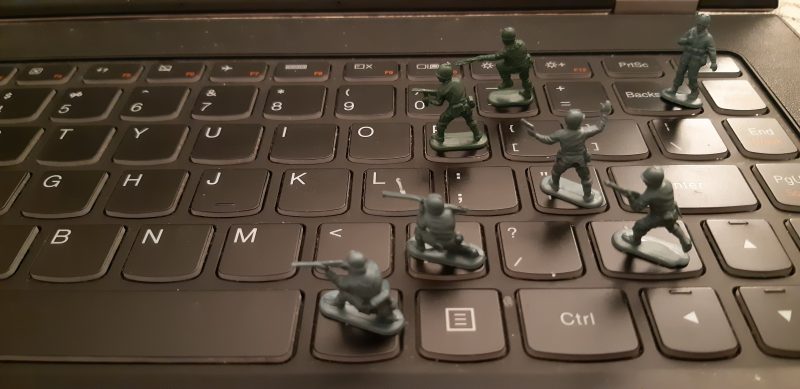New voting machines are coming to three west suburban Cook County townships for next week’s consolidated elections in preparation for a countywide rollout next year. The Cook County clerk’s office will test machines in 147 precincts in Oak Park, River Forest and Proviso townships, and hopes to have the new voting machines in every suburban Cook County precinct by the 2020 presidential primary election. “Our current equipment has served us well for a decade, but these new machines have the latest technology,” county Clerk Karen Yarbrough said at a Tuesday morning news conference. “The touch screens are more intuitive and accessible for voters with disabilities, and every single voter will get to review their ballot with paper in their hands before their vote is cast,” Yarbrough said. Each machine can accommodate three voters at one time, with two touch screens and a paper ballot. A voter will use the touch screen as a ballot marker, then print the ballot to review it, according to a demonstration by the clerk’s election director, Tonya Rice. The voter will then hand the ballot in a privacy sleeve to an election judge, who will initial it and place it in the scanner. The scanner accepts the paper ballot and creates an image of the ballot. Because it’s the same machine, the paper ballot and touch screen ballots are automatically consolidated, according to information provided by the clerk’s office. One touch screen is lower to accommodate voters who use wheelchairs, and voters will be able to change the text size and color contrast if they need. An audio ballot is available in English, Spanish, Hindi and Chinese.


 Ukrainians will head for the polls on Sunday 31 March in what will be the first regular national elections since the country’s 2014 Euromaidan revolution. With its Crimean peninsula still occupied by Russian forces, an ongoing military conflict in eastern Ukraine, and rising activity of far-right groups, the country is a prime target for both domestic and external information influence operations. Ukraine has been in the crossfire of disinformation warfare since 2014, with multiple political actors attempting to disrupt its democratic development. The elections for both the office of the president and parliamentary seats will be a crucial test for Ukraine’s democracy and stability. Much of the action has taken place on Facebook, which is the country’s most popular social network. Despite persistent efforts of civil society and media groups, Facebook has done relatively little to respond to Ukraine’s disinformation problem in the past. But the company changed its tune in January, when it publicly announced that it had taken steps to counter some of these issues.
Ukrainians will head for the polls on Sunday 31 March in what will be the first regular national elections since the country’s 2014 Euromaidan revolution. With its Crimean peninsula still occupied by Russian forces, an ongoing military conflict in eastern Ukraine, and rising activity of far-right groups, the country is a prime target for both domestic and external information influence operations. Ukraine has been in the crossfire of disinformation warfare since 2014, with multiple political actors attempting to disrupt its democratic development. The elections for both the office of the president and parliamentary seats will be a crucial test for Ukraine’s democracy and stability. Much of the action has taken place on Facebook, which is the country’s most popular social network. Despite persistent efforts of civil society and media groups, Facebook has done relatively little to respond to Ukraine’s disinformation problem in the past. But the company changed its tune in January, when it publicly announced that it had taken steps to counter some of these issues.